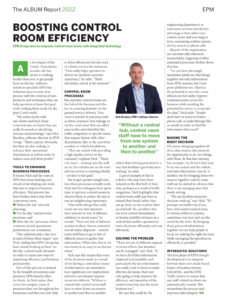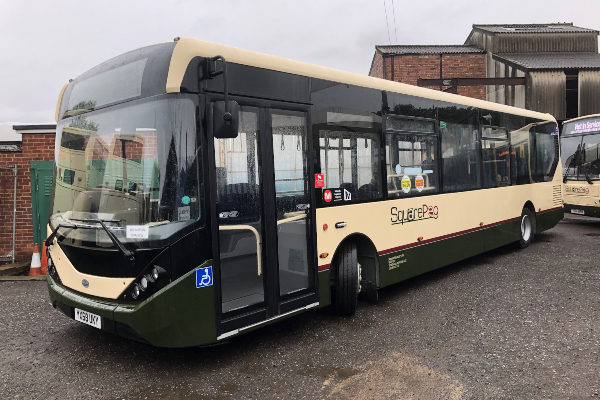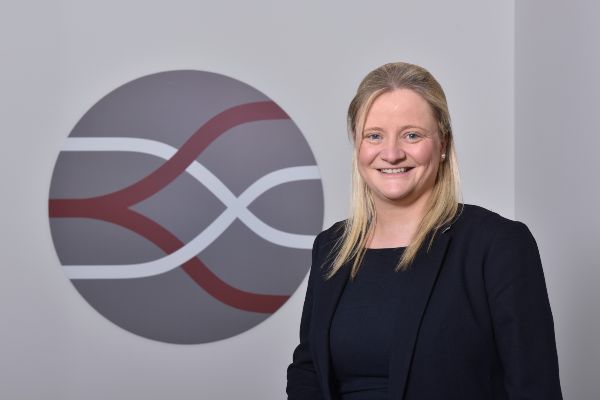
Omnibus and EPM parent company Velociti Group aims to empower bus operators’ control room teams with integrated technology.
As the impact of the Covid-19 pandemic recedes, the bus sector is working harder than ever to get people back on the bus.
Software solutions specialist EPM Bus Solutions aims to assist that process with the creation of new products and techniques that can help operators achieve that goal while making them ready for the post-Covid world.
“We work closely with our clients and from those conversations, we know they are really focussed on rebuilding revenue and patronage,” says Nick Brookes, software director at EPM and Omnibus. “That’s a given, obviously, but they are also seeking to enhance their operational effectiveness as well in order to reduce costs and drive profits.”
Tools to enhance business processes
It means Nick and his team at EPM and Omnibus have been looking very closely at developing new tools that aim to improve business efficiency. That process has been broken down into three component parts:
- ‘Before the day’ network planning;
- ‘On the day’ control room processes; and
- ‘After the day’ processes where commercial and operational performance are scrutinised.
“Our solutions play a key role at each of those three stages,” says Nick, adding that EPM and Omnibus have been closely looking at those ‘on the day’ control room elements in order to create new ways of improving efficiency and business productivity.
Part of that process is assisted by the breadth of solutions and products EPM and Omnibus already offer to clients. As Nick notes, they cover the complex chain of processes that run throughout bus businesses and they not only help to drive efficiencies but also lead to a better service for customers. “That really helps operators to deliver an excellent customer experience,” he adds. “That’s absolutely critical at the moment.”
Control room processes
Bus operator control rooms are the hub of the business and the key to ensuring fantastic on the ground service delivery. They cover a myriad of processes such as driver absences, lost mileage or on-the-road issues that can affect punctuality and reliability like traffic congestion or specific issues that require liaison with other departments, like in the case of an accident or vehicle breakdown.

But to gain greater insight into how those processes actually work, Nick and his colleagues have spent time in bus operator control rooms to observe them in action. He says it was an enlightening experience.
“One of the things that really stood out was that operators have invested in lots of different solutions in recent years,” he reveals. “There are lots of different systems in there, but we noticed it was all rather disparate – control room staff have to go to lots of different places to gather that information. When they find it, it’s not always in an easy-to-use format either.”
Nick says this means that some of the decisions made as a result of not having a centralised source of information can sometimes have significant cost implications and even detrimental impacts on service delivery. “Without a central hub, control room staff have to move from one system to another and then to another rather than it being presented in a way that facilitates good decision-making,” he adds.
A good example of that is a driver who may have been delayed on the first half of their duty, perhaps as a result of traffic congestion. Nick highlights that control room staff may have to extend their break before they can go back on the road for their second half. It’s a problem that has to be solved immediately, so having visibility of issues in a central hub enables operators to make decisions efficiently and cost effectively.
Solving the problem
“There are lots of different impacts in terms of how that situation can be managed,” says Nick. “If we have all of that information displayed and available, and particularly the key information you really need to know to make effective decisions, that’s not only going to help improve the efficiency and operation of the control room but also the wider business too.”
He says this could be the engineering department or customers services, but the key advantage is that rather than control room staff resorting to time-consuming written reports, ad-hoc emails or phone calls – all parts of the organisation are automatically informed immediately, triggering further automated processes further down that line.
“So you have this single operations platform, that brings together not only information from our group systems, but third-party platforms too. That has the potential to not only create efficiencies but really improve communication across the business while avoiding the potential for errors to creep into the data,” Nick adds. “People don’t have to resort to frantic phone calls or wade through files or emails in order to find the information they need.”
Making the right decision
Of course, bringing together all these data sources also presents the opportunity to do new things with them. In that late running bus example, the driver’s duty may be in one system and the vehicle real time information may be in another, but by bringing those two sources together control room staff can be alerted in advance that there is an emerging issue that needs solving.
“We can facilitate proactive decision-making,” says Nick. “It’s perhaps inevitable that if you have information tucked away in various different systems, sometimes you just can’t see the wood for the trees. By bringing those pieces of information together we can help people to focus on making the right decision while managing the operation as efficiently as possible.”
Integrated solutions
The first phase of Velociti Group’s development is to integrate between their new cloud-based Depot Allocation System, OmniDAS, and the EPM Traffic system to ensure that any staff-related incidents are automatically created. This streamlines the process and improves data integrity.
Powering the future of your bus operations
Grow patronage, boost revenue, and drive operational efficiency.




 Simon Rowland, Managing Director of Rowgate Group, said: “It is important for us to stay ahead of the game and to do this we need a partner with proven solutions and a deep understanding of the UK bus industry and the challenges operators face.
Simon Rowland, Managing Director of Rowgate Group, said: “It is important for us to stay ahead of the game and to do this we need a partner with proven solutions and a deep understanding of the UK bus industry and the challenges operators face.



